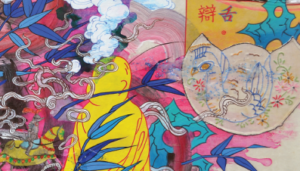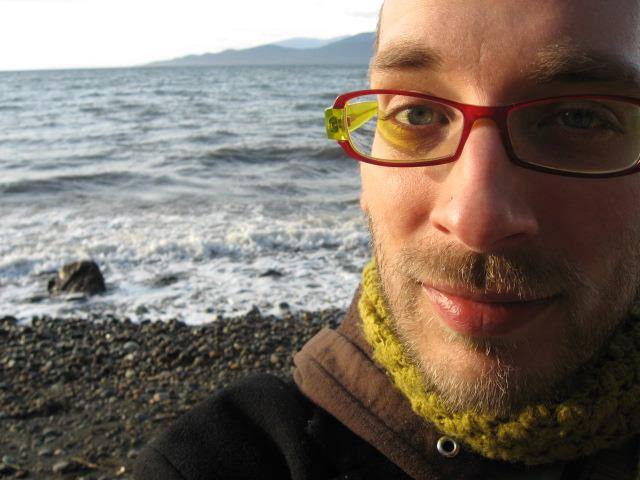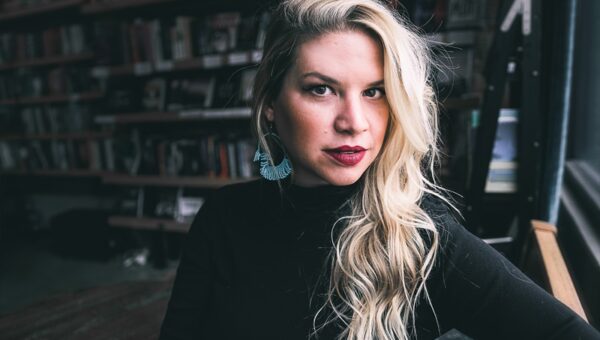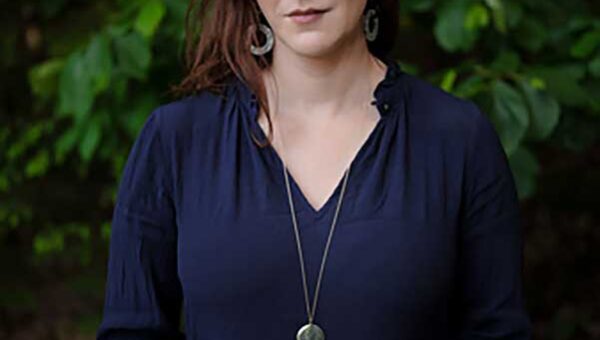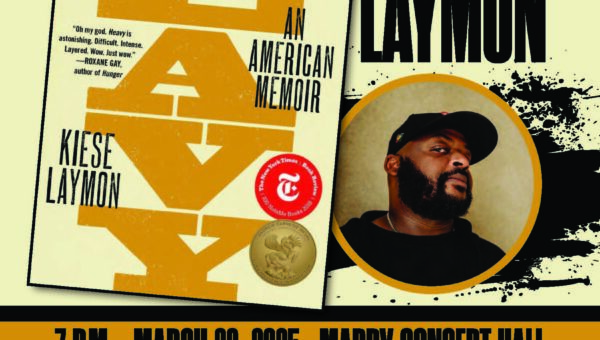Amy Wright: How do you gender identify, and what do you wish people understood about gender identity?
Sugar le Fae: I’m genderqueer, foremost, queer. I’m a big fan of versatility, and queer is a very useful word. For me, queerness is just another term for otherness: identifying with the outsider, identifying with those aspects of ourselves which make us unique, which give us individuality and perspective. Gender and sexuality are often a component of queerness, but I’m queer regardless of my gender expression or sex-life. If I ran off to a convent and never had sex again, I’d still be queer. I’m radically queer. I don’t want to be straight. This doesn’t mean I don’t celebrate my bisexuality or panromantic interests. But queerness liberates where straightness confines. Queerness guides me every day to give away my privileges. To lift up those with less. To love radically. It informs every aspect of my worldview. Every interaction I have with the world is queer. Because I often present “male,” most folks can’t/won’t see the full female self I am, in addition to my maleness. It’s a kind of faerie magic and privilege. To be able to walk among the muggles and not be clocked as a unicorn. Many of my trans and gender-nonconforming siblings don’t have or want that privilege. Of course, even my “boy clothes” are just a kind of sad drag. I identify as trans-feminine, but especially in the last few years, I’ve felt less comfortable dressing “feminine” in public. Some of my heroines include writers Alok Vaid-Menon and Vivek Shraya, two of many amazing trans artists and activists, whose talent, visibility, and courage inspires me.
AW: In your poem, “A Body in the Dark,” you write: “I’m genderqueer. / Because trans feminine / with no desire to transition // is a mouthful.” What can poems bring to conversations about gender that other forms of communication can’t?
SlF: Poetry makes readers pay attention in a way that prose aims to be invisible. Reading a good novel or memoir, one is carried away by/absorbed into the details of the narrative or gorgeous imagery—and the language becomes a kind of waking dream, a movie in the mind. The bigness of it all supersedes the need to scrutinize an extra word here or there. Good poems can be enjoyed on the same level, of course, but even the most plainspoken, prosaic poems stack meaning in such a way that many “correct” readings can coexist. Keats famously described this as “negative capability.” Because poetry also invokes visual techniques (line-breaks, enjambment, white space), the potential for symbolism, double-entendre, synchronicities, etc. imbues poems with layers of meaning. The precision of ambiguity one can achieve in poetry is astonishing.
AW: Do you see poetry primarily as a tool of communication, protest, self-creation, or something else?
SlF: I’ve facilitated independent poetry workshops since I was sixteen (I wrote sisteen), and in my experience, each writer’s connection to the craft is unique. Some of my friends write to exorcise an emotion or memory, to get something out. Some write to challenge social norms or channel anger. Some explore different voices, tones, or philosophical arguments. Some write for the music of language. Some just write for the hell of it. As a Gemini, I’m a little all over the place. I’m hopelessly conservative (read: straight) in my poetics. My true loves include Rita Dove and Kay Ryan. Though, like most kids, I was fed a steady stream of dead, straight, white, male poetry. I subvert these canonical traditions by exploiting their familiarity to introduce queer content. My poetry has three imperatives: compression, music, and meaning. The goal is to write clear, tight lines that maintain casual language, arranged in such a way to amplify the music already there.
AW: Your biography describes you as a Radical Faerie. What does that descriptor, and radicalism in general, mean to you?
SlF: Whew. That’s a dissertation question. I was first introduced to the faeries in 2006, visiting a faerie sanctuary with my best friend in the backwoods of Tennessee. But I’ve met fae all over the world, and what it means to be a radical faerie probably includes anything you might imagine. Many faeries live in queer, intentional communities. Some urban, many rural. Faeries generally have a reverence for the Earth, animals, and each other. Sexual liberation. Many definitions of faeries include concepts such as radical love and radical self-acceptance. Faeries self-identify. Anyone can be a faerie. I’ve met faeries of every shade, gender, and persuasion. Many are loudly outrageous. A good many are quite shy. We run the gamut of any international community I suppose. My onetime roommate in New Orleans was the first, straight, male to be crowned a Faerie Empress, so there’s room for everyone.
AW: The website radfae.org suggests that Radical Faeries share “a spiritual dimension to our sexuality.” How do you think the spiritual and sexual inform each other?
SlF: Queerness resists distinctions between body and spirit. Sex is one expression of union and communion, closeness, tenderness. Like many Feminisms, radical faerie philosophy (whatever that means) and faerie-adjacent social movements advocate for sexual liberation from social shame inflicted upon everyone, queer or otherwise, by heteropatriarchy. My Venus is in Cancer, so sex and romance is already a very cerebral, personal experience for me. But I’ve slept with enough straight men to recognize that sexual liberation can be life-altering—akin to a spiritual experience when it leads to deeper empathy. Of course, most of us are so tangled up in shame that we tend to punish and police ourselves—to keep ourselves from the natural, organic, consensual, intimate experiences we might have with someone we didn’t expect. Ideally, that’s how sexuality and spirit interact: they bring us closer to each other. In Plato’s Symposium, Socrates famously claims that lust can lead us to divinity. It was an old idea in Plato’s day. It’s nothing new.
AW: Your name contains the root of the word “faerie.” What do faeries signify for you personally?
SlF: Sugar le Fae is my faerie name, and my pen name. Funny backstory: A decade ago, I was on a study abroad in Greece, and the teacher told us that “Zachary,” my given name, means Sugar in Greek (“saccharine” and “Zachary” are cognates). Soon, all of my peers affectionately started calling me Sugar, and the name stuck. Years later, after teaching college English in Nashville for a few semesters, students began to find me on social media. I decided to change my online presence to Sugar; however, some platforms require a last name, so on a whim, I typed Sugar le Fae, after Morgan le Fay, one of my favorite mythical figures. Like many rad fae, I do connect with the amorphous spirits of the forest, whose ways seem mystifying and chaotic to muggles, and I’ve found the old adage to be true: Once you eat with faeries, you never return.
Only years later did I make the association with Marilyn Monroe’s character, Sugar, in Some Like It Hot, one my all-time favorite films since high school. But I recognized early the power of having a queer name. Other people’s reaction, when I introduce myself as Sugar, speaks volumes about them, and that’s another great example of faerie magic—I use the term in a few ways. Some people say providence or serendipity. I say faerie magic. I’m an atheist, agnostic, (culturally) Christian, who touts bullshit about astronomy. I like the idea that somewhere on the edges of perception, there are faeries conspiring to trip us up, sometimes for our own good, sometimes to wake us up.
AW: On social media you call attention to the dangers that trans people experience, including threats to their survival. Is your safety ever threatened due to gender expression, or does the threat of danger restrict you from being yourself?
SlF: Every female or feminine person knows on some level the fear of male violence. Likely on a daily basis. Our human experience is so corrupted by misogyny, racism, ableism, e.g., no one is immune to, or separate from, these inherited tidal waves of privilege and oppression. Boys are ready to harm each other for being called girls. Misogyny undermines every interaction we have as humans, from our language, to our egregiously racist and sexist criminal justice system, to the way we won’t teach boys emotional intelligence for fear of feminizing them—boys who grow up and lash out in violence. We all suffer under this current and continuous persecution of females and the feminine.
I, however, have a lot of white, (perceived) male privilege. I’m tall with broad shoulders, usually with a face full of hair. And still, I’ve experienced many incidents of violence or potential violence because of homophobia/transphobia/misogyny. Now imagine what a trans woman of color must deal with on a daily basis. Men are scary precisely because they don’t have to account for their bodies in relation to the public. They push through crowds. They man-spread on trains. They walk home late at night. Most minorities and women don’t have the luxury of fearlessness. Fearlessness also breeds ignorance.
AW: What rights would you most like to see acknowledged or better protected for the LGBTQ+ community?
SlF: In some urban areas, LGBTQ+ youth account for half of the homeless population. Being gay is still illegal in 70 countries in the UN alone, often punishable by torture or death. Universal Healthcare is a queer issue when LGBT folx are legally discriminated against by their healthcare providers. Racism is a queer issue when the average life-expectancy for Black trans women is 32. Wealth disparity is a queer issue when corporations spend billions to elect racist, homophobic politicians. The list goes on. Because queerness is intersectional, queer rights are extra vulnerable to attack. What I really want to see is straight, white folx calling out their racist, misogynistic, ablest, etc. friends and family. All white people benefit from white supremacy. We’re all born and raised in a bigoted society, and it’s ignorant at best to think that any of us is immune from the effects of our upbringing. One has to acknowledge one’s privilege and resist those very systems that created it. But the first step is empathy. Then, action.
AW: You write nonfiction as well as poetry. How do you relate to the essay, and what possibilities or restrictions does it bring to your writing?
SlF: I hate writing prose. Ha. I always have to be different. For most folx, prose is far easier to write (and read) than poetry—whether an email, a short story, or a journal entry—but for me, prose is absolutely the hardest thing to write. I think in poetry. I see (and make sense of) the world in poetry. Prose bores me. No line-breaks? No rhyme? Being a poet is akin to being queer for me. I can’t help but see the world from a queer perspective; it informs my entire frame of reference. I’m a poet, and I relate to reality through poetry. Any time I write an essay or, say, this interview, I’m really writing poetry disguised as prose. My shopping lists rhyme. Poetry’s my baseline.
Now, the importance of nonfiction as a genre is tremendous. No one could deny that nonfiction is pretty much the only writing that “sells” anymore. Well, memoir and tell-alls. More importantly, nonfiction has produced some of the most important works of art (journalism, memoir, biography, etc.) of the last two millennia. I’ve got several books of nonfiction brewing in my brain, on hold until I complete my PhD.
AW: Since transgression shares a prefix with transgender, I wonder if you think of your writing in terms of what it “goes beyond,” or “violates,” as two opposing definitions of transgress suggest.
SlF: Queerness is transgressive by nature. I hope to write more and more transgressive poetry. I aim to write queer stories that give permission to others to live authentically, the way my queer mentors, strangers, friends, and lovers gave permission to me. I want to write poems that investigate my own privilege, trauma, gender, class, etc. To take risks and raise the stakes. To transgress, yes, and hopefully, to transcend.
